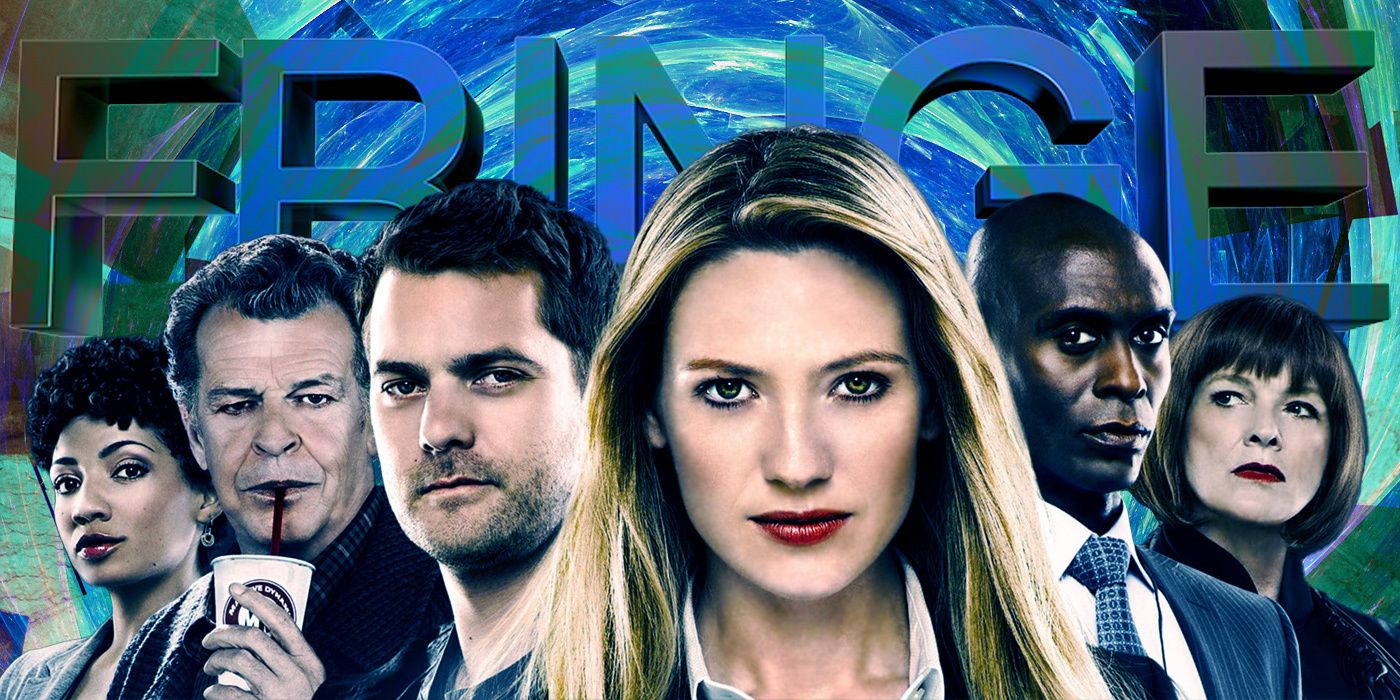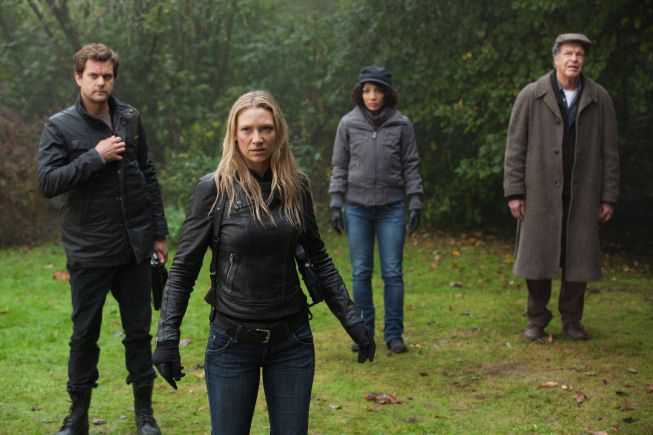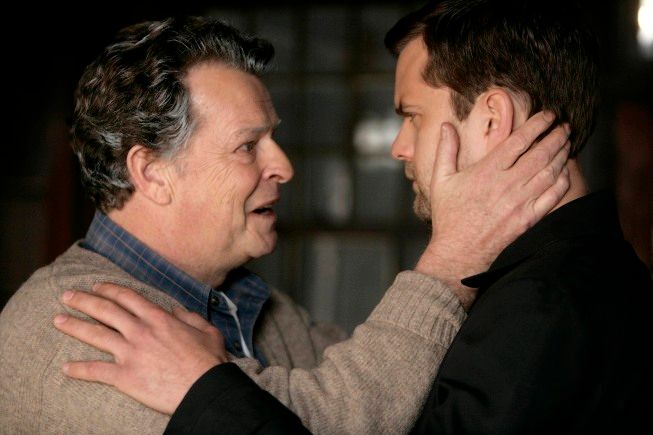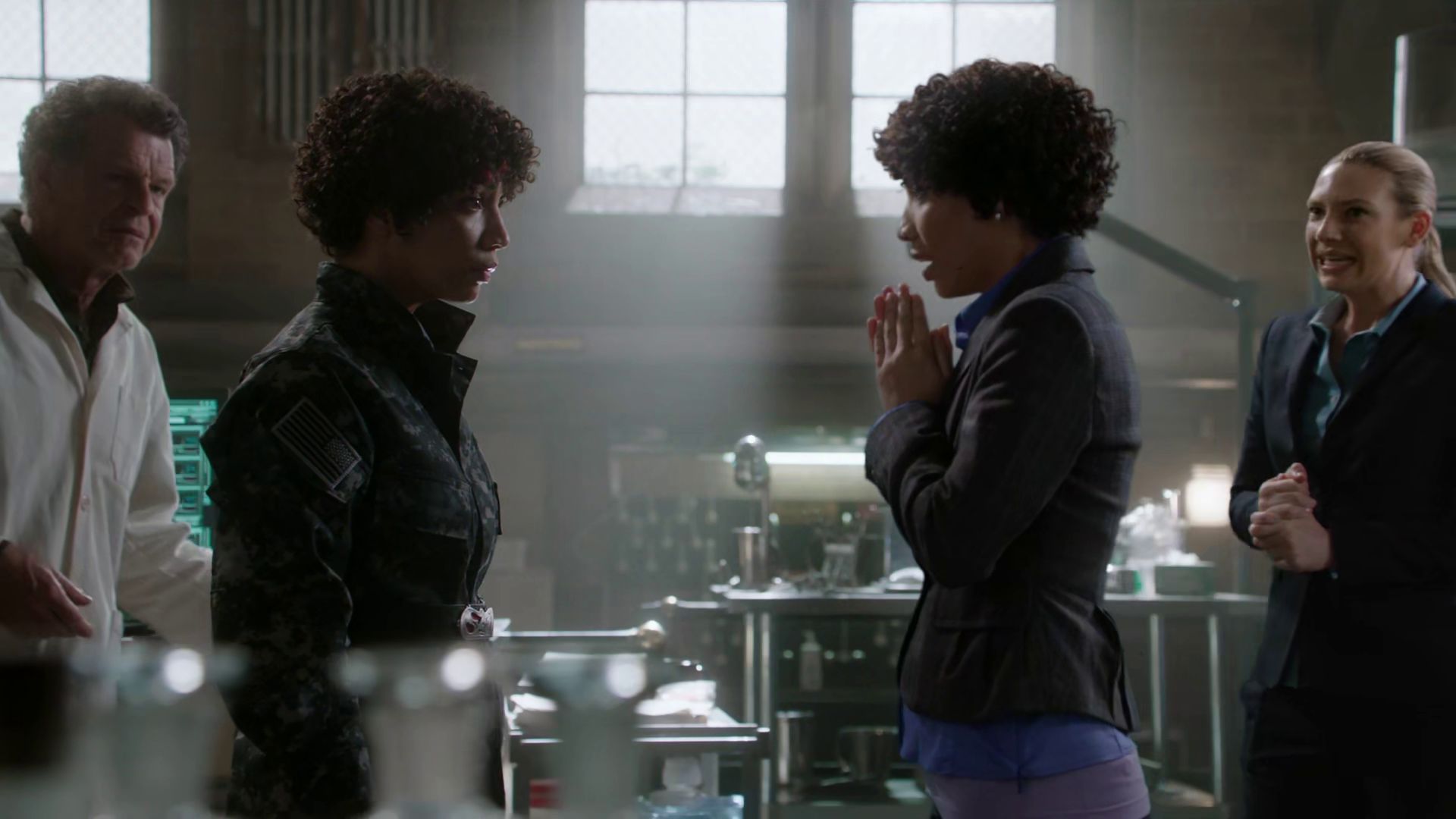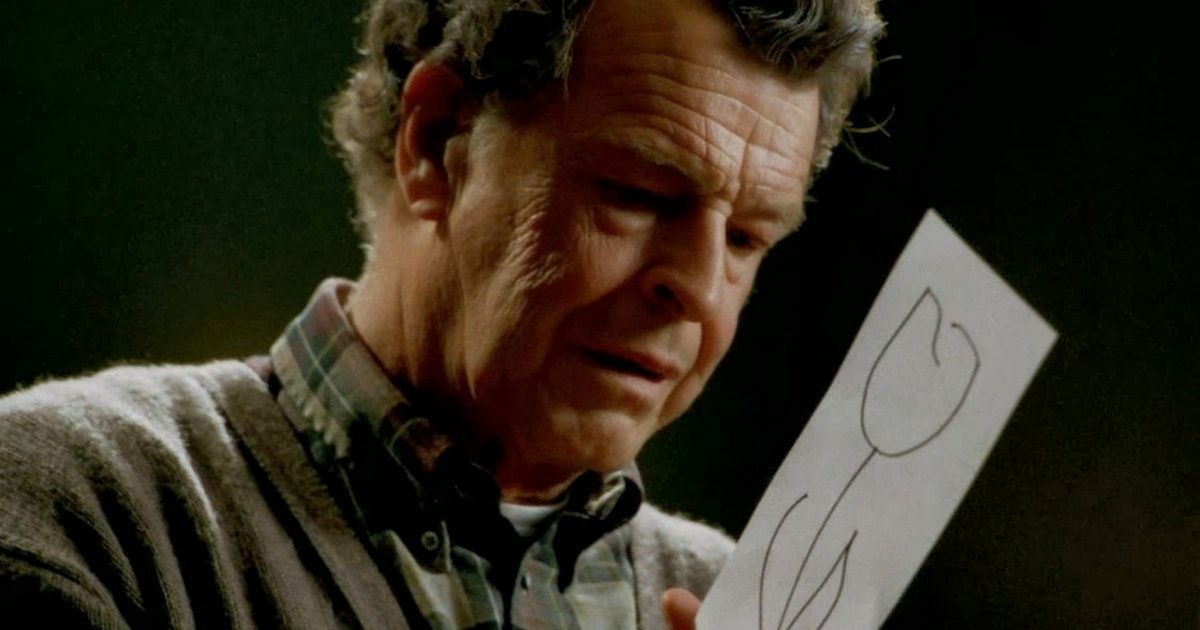Fringe is a unique show in that each season is remarkably different. The series' connective tissue of its carefully constructed mythology is consistent across the series, as is its case-of-the-week format, but showrunners Jeff Pinkner and J.H. Wyman were never afraid to take big swings with each season's tone and central arc. Combined with an incredible cast of characters in Olivia (Anna Torv), Peter (Joshua Jackson), Walter (John Noble), and Astrid (Jasika Nicole), the result is a series that manages to feel both fresh and exciting. Some bolder choices and risks don't hit the mark as well as others, but most succeed in elevating the show from a standard sci-fi procedural to one with a creative mythology, thoughtful character development, and high stakes. It's no coincidence that it was once referred to as "the best major-network show that no one is watching." But which season is the best that Fringe has to offer? From the introduction of memorable characters and original mythology in Season 1 to the exquisite use of the Alternate Universe in Season 3, here are all five seasons of Fringe, ranked.
5. Season 5
Season 5 takes the plot and setting of Season 4's "Letters of Transit" and expands it across 13 episodes. The show's final season takes place in a dystopian future after the Observers have taken over humanity, and it's up to the team of Olivia, Peter, Walter, and Astrid to figure out how to undo the damage that has been done. An Observer-ruled future was a fun what-if scenario when it was introduced in "Letters of Transit," but the concept becomes less exciting when stretched across an entire season. Plus, the Observers were most effective (and mysterious) when they were used in small doses. Season 5's tone is also darker and more depressing compared to its previous seasons. It seems to be intentional, but the dramatic tonal shift results in the loss of some of the show's fun. There is a clever scavenger hunt element to the season involving the team's search for a series of Walter's videotapes about how to defeat the Observers, but spending time in a future that doesn't come to pass makes Season 5 feel like time wasted.
4. Season 1
Fringe's inaugural season isn't terrible by any means. It's a perfect case of a show beginning to find its own identity and what sets it apart from other investigative procedurals like The X-Files. In addition to its memorable characters, the first season is packed with plenty of case-of-the-week-style episodes that introduce the audience to the concept of "fringe science" such as telepathy, hypnotism, and teleportation. "The Dreamscape," "The Safe," and "The Road Not Taken" are particularly notable episodes. But where the season really shines is when it begins to slowly introduce the series' overarching mythology. Whether infusing the plot with the bio-terrorist group ZFT, parallel universes, or Walter's secret past, the clues and hints parceled out across the season's episodes give viewers fresh mysteries to ponder and plot threads to unravel that make it even more captivating. Fringe finds its rhythm by the end of the season, setting up viewers for a solid Season 2 with a cliffhanger ending (and final image) that's one of the greatest TV final reveals of all time.
3. Season 4
Season 4 picks up after the Season 3 finale that saw the creation of a new timeline in which Peter, never having been rescued from Reiden Lake in 1985, has been erased from existence — and the minds and memories of Olivia and Walter. It was an intriguing cliffhanger with tons of story potential, though the show begins to lose some of its momentum with the amount of time spent waiting for the rest of the Fringe team to remember Peter. It's hard not to itch for the eventual reset of the show's original timeline. When it does, though, it returns to prime Fringe form with the compelling arc of both universes setting aside their differences in order to stop the now-villainous William Bell (Leonard Nimoy) from destroying both universes. Fringe is no stranger to making bold storytelling decisions and taking big risks and Season 4 is no different. The ones that pay off are incredibly successful, especially storylines, mysteries, and reveals like Olivia's pregnancy, the mind-enhancing drug Cortexiphan, September's mysterious warnings about Olivia's death and that the Observers are coming, and yet another classic Fringe cliffhanger finale.
2. Season 2
Picking up after the bonkers cliffhanger of Season 1, Season 2 is where Fringe really begins to hit its stride. There's added focus and depth to the series' characters as well as the overarching mythology, especially when it introduces the plot element of shapeshifters which adds another layer of intrigue to the story. Details are fleshed out involving Peter's past and the Alternate Universe, not to mention an exciting build-up to the war between universes that William Bell once speculated would occur. Season 2 also features some of the series' best episodes in "Peter" and "White Tulip" that give answers to burning questions posed in Season 1. We're also treated to more time spent in the Alternate Universe, as well as being introduced to alternate versions of Olivia ("Fauxlivia") and Walter ("Walternate") that shake up the show's character dynamics and storytelling possibilities in interesting ways. With its expanded mythology and great attention paid to making the show's character arcs satisfying, Season 2 leads to a terrific and white-knuckle finale that rivals that of Season 1.
1. Season 3
Season 3 is the best Fringe installment by far. Not only does it dive head-first into the series' mythology and the potentially universe-destroying Wave Sink Device, but it does so incredibly well. From callbacks to earlier seasons to new questions posed and mysteries to be solved, there's an impressive amount of attention, care, and detail paid to making the show feel completely original while making the season's stakes feel even higher when Olivia, Walter, and Astrid meet their Alternate Universe counterparts. What's more, the season's character arcs are given just as much focus and importance as its mythology. Whether focusing on Olivia's imprisonment and brainwashing in the Alternate Universe or Walter's past experiments on children, the character development is phenomenal all around and makes us able to become even more invested in them and their arcs. (Olivia has an especially wonderful arc throughout the season that's both captivating and heartbreaking, brought to beautiful life in a pitch-perfect performance from Anna Torv.) In addition to time spent in the Alternate Universe that makes for a uniquely rich viewing experience, Season 3 also includes some of the series’ best episodes in "Marionette," "6B," "Olivia," and the spectacular finale, "The Day We Died" that features the did-they-just-do-that?! cliffhanger of Peter being erased from existence.

